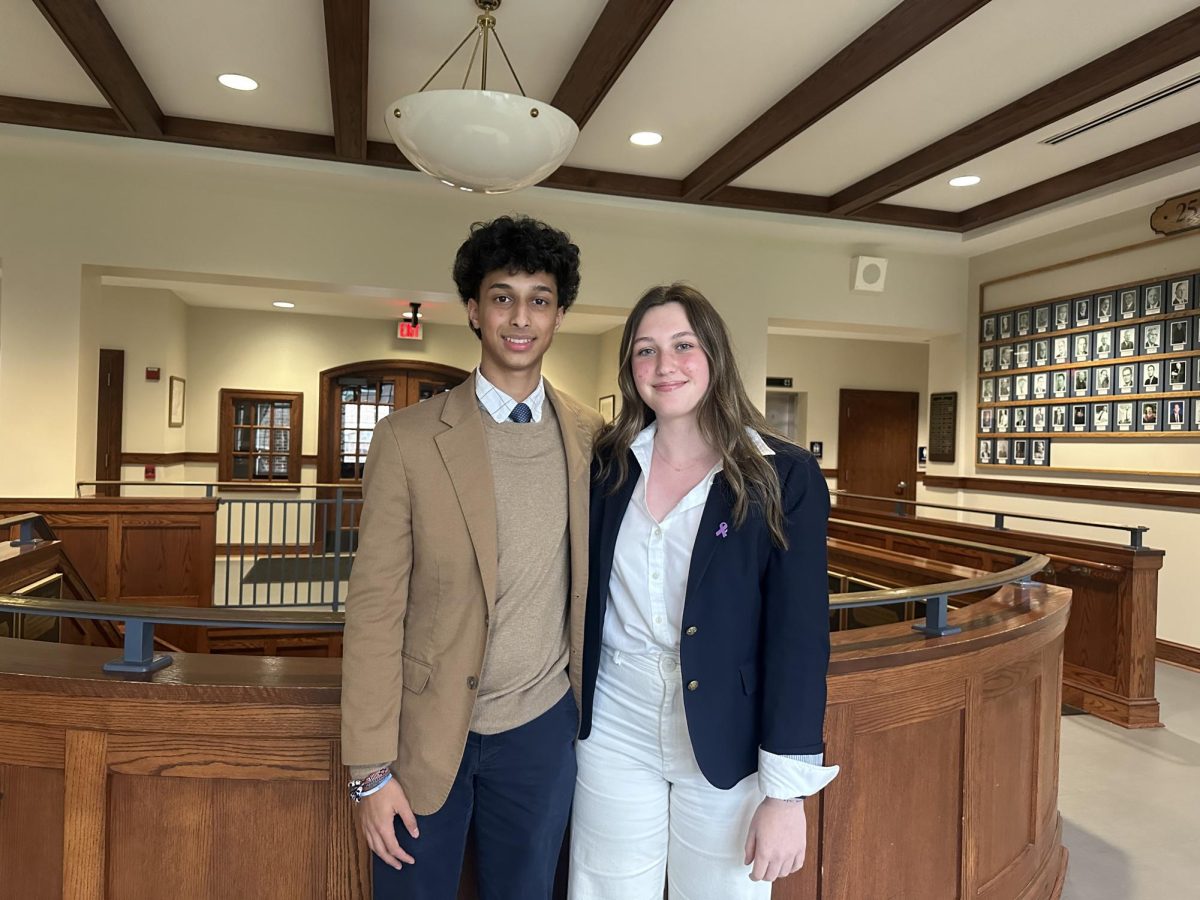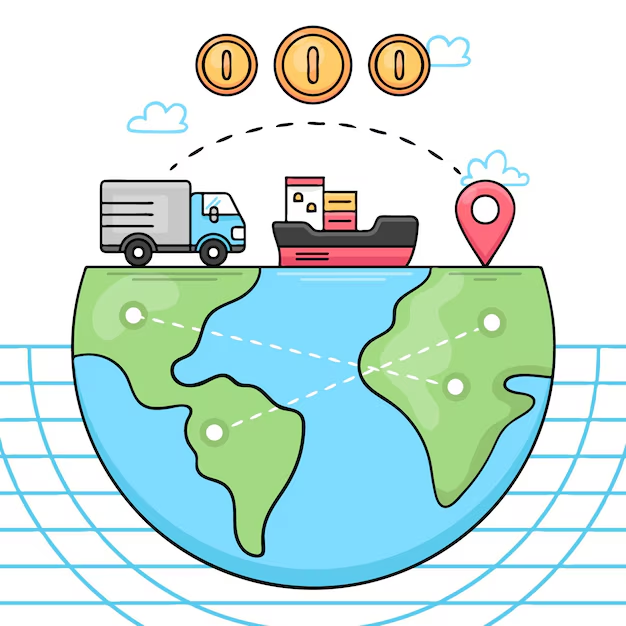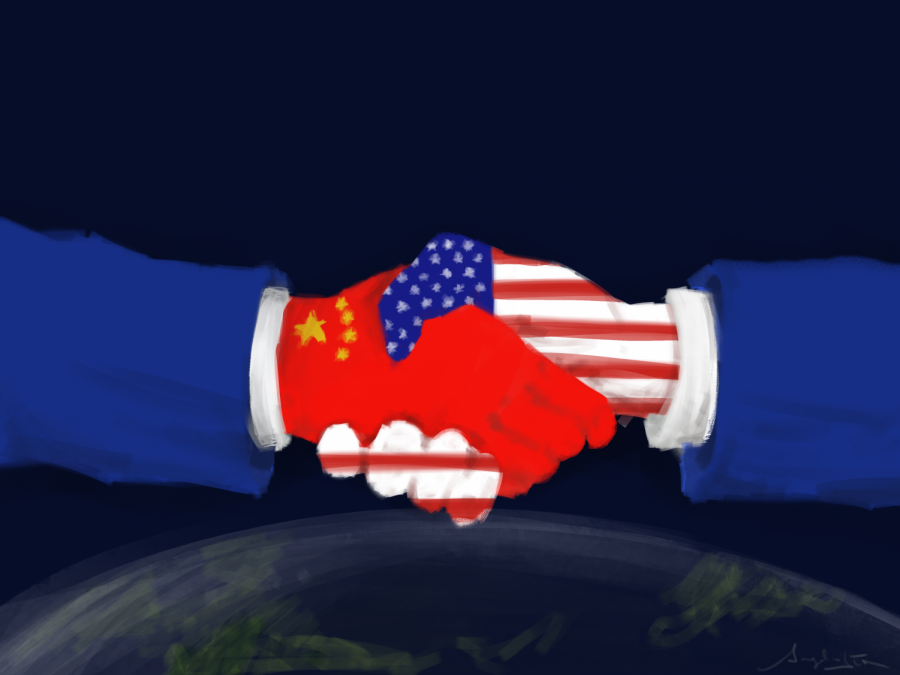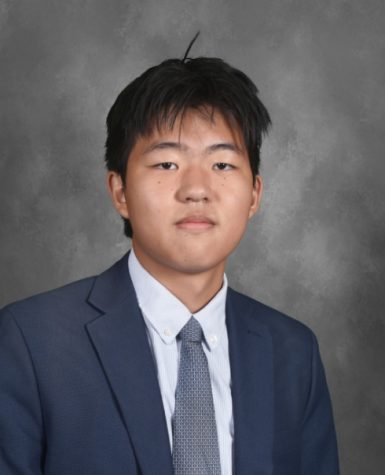The urge to liberalize China could prove costly for U.S.
Media: Angela Jin ’24
Illustration by Angela Jin ’24
As the tension between the United States and China always seems to grow, the world will be in danger if these two countries fail to address the cracks in their relationship. The United States should start to seriously consider the possibility of a world order shared by the two countries and characterized by their very different forms of government.
When U.S. President Richard Nixon visited China in 1972, he sewed a groundbreaking thread in the two countries’ relationship. It was unthought of at the time for the leader of the western world to open diplomacy with a Chinese government that was closer than ever to advancing the spread of communist revolutions worldwide.
It was clear what the main objective was for Nixon and his successors during the Cold War. They wanted to skew the balance of power against the Soviet Union in favor of the United States by improving ties with China. Their geopolitical needs could be met too due to China’s location.
However, as the century turned, the United States and China seem to be progressively slipping into Thucydides’ Trap, which describes a tendency towards war when an emerging power challenges the hegemony of an existing one.
No, the slip did not occur simply because of Xi’s assumption of power or former President Donald Trump’s trade policies, although they certainly played a part in exacerbating the divide.
It is important to note that during the Cold War, U.S. engagement with China was largely unsentimental and for the purpose of realizing geopolitical goals. Of course, Nixon, Ford, Carter, and Reagan additionally all promoted China’s economic development, which was long overdue as the sleeping giant had the greatest number of poor and hungry people in the world at the time. However, that was mainly motivated by humanitarian reasons as none of them could foresee then how fast China would develop into a challenger for global hegemony.
Although situations have changed since then, the key to unlocking a successful diplomacy with China remains the same, a “non-encroaching approach.” The presidents during the Cold War did not seek to influence the power of the Chinese Communist Party. Reagan commented famously in 1984: “I’m an anti-Communist if you talk about Communism for the United States … but I have never thought that it was necessary for us to impose our form of government on some other country.” Although this intention to keep the CCP in power did not matter at that time due to the significant difference of power between the two sides, the logic can be applied now to safeguard their relationship from Thucydides’ Trap.
In fact, U.S.-China relations really worsened after the Cold War, when the euphoria of victory inspired President George H. W. Bush and President Bill Clinton to form a new global order marked by liberal democracy and market capitalism. Perhaps due to their colonial history, China and the CCP, politically synonymous terms for some time, perceive all foreign attempts to bring about political change, and specifically the U.S. ones, to be a challenge of their sovereignty. Beijing has believed for some time that Washington has plans to westernize and split up the country, which are seen as direct threats.
The problem with many American diplomats is their view that the CCP’s power is waning and that efforts can be made to crumble the party’s rule in China as they did with the Soviet Union in the late 20th century. However, the CCP is unlikely to fall from within without a modern global war. If the United States intends to avoid that outcome out of concern for its own safety or for that of the rest of the world, they should learn some lessons from history and try to comprehend what China and the CCP really want.
The absence of communication is the root of the plight and the United States can start to fix its relationship with China by paying close attention to media press conferences offered by the Foreign Ministry Information Department of China. For instance, on July 17, Hua Chunying, a spokesperson and the director of the ministry, directly answered questions from foreign journalists about potential pathways to a healthier and more peaceful U.S.-China relationship.
She stated that China has never tried to replace the United States as the sole global hegemon, but rather that the country of 1.4 billion people just wants to protect its interest, people, and sovereignty. Claiming some U.S. diplomats have repeatedly tried to vilify the CCP and what it represents, she said eliminating biases and prejudices are key for successful coexistence and longstanding peace between the two countries.
By carefully evaluating a history of relations with China and actively listening to the CCP today, the United States will surely find a way out of Thucydides’ Trap and into the days when the two countries were considered allies and friends.




























